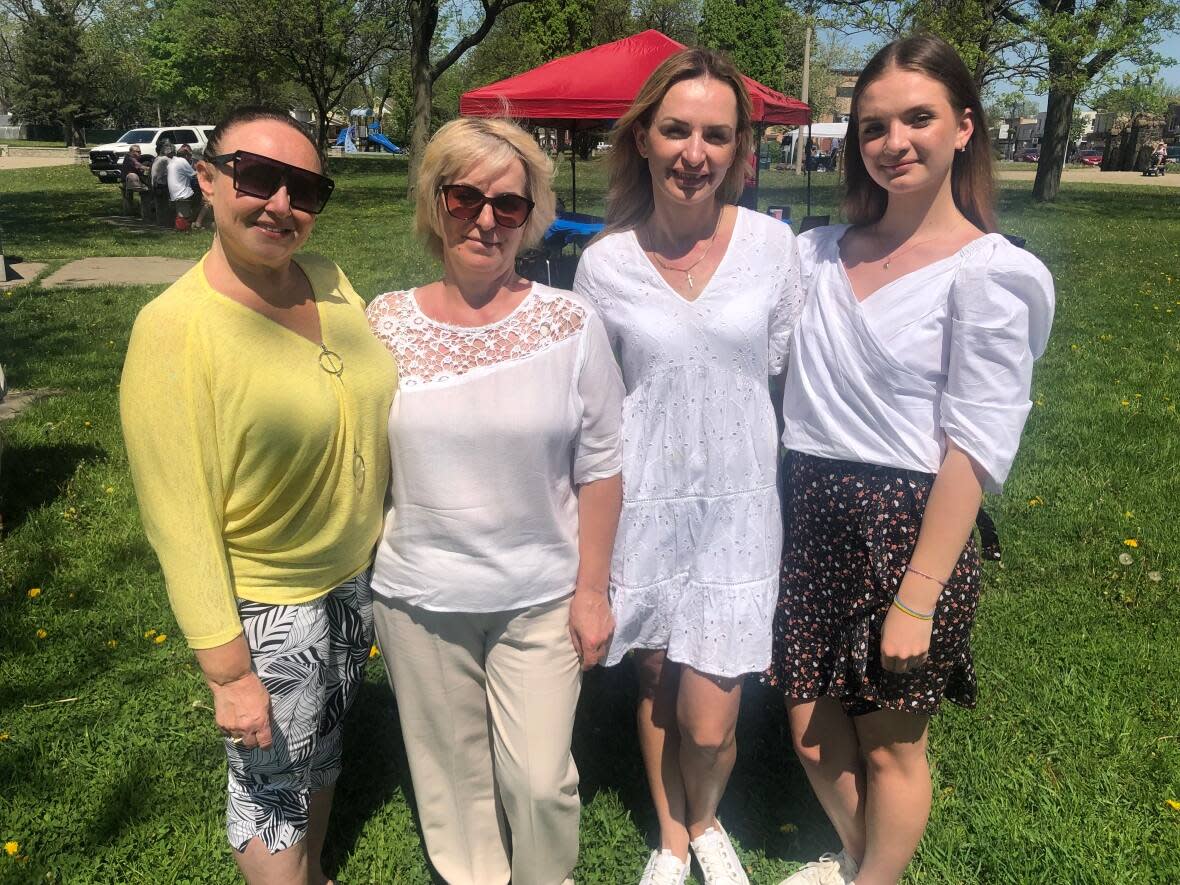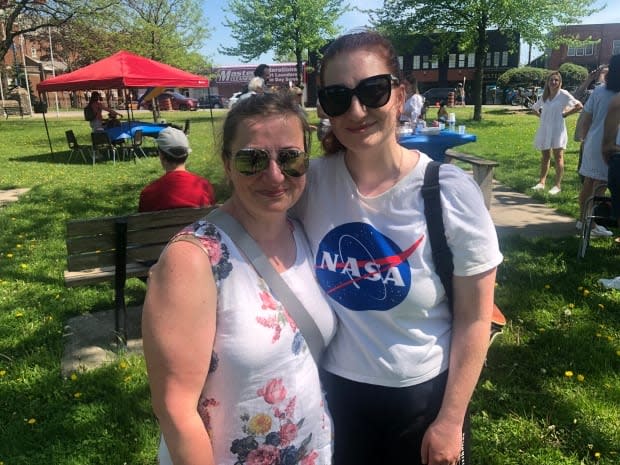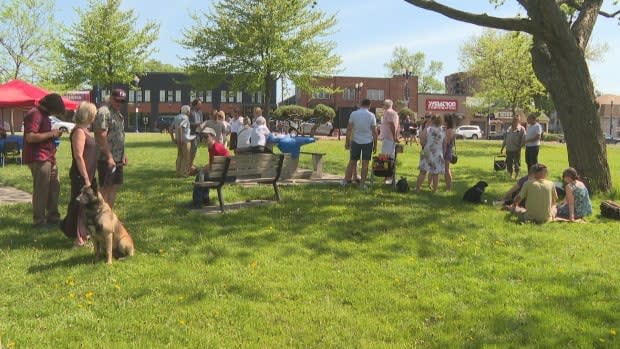Ukrainian refugees face language barriers as they settle in southwestern Ontario

Ukrainian refugees are doing their best to get on with their lives after arriving in Windsor, Ont., but say they are facing challenges after fleeing their homeland following Russia's invasion of the country.
Daria Yepifanova fled Ukraine on March 8 with her mother Natalya and a one-year-old baby, about two weeks after Russia first invaded. Her city, Sumy, in northeastern Ukraine is just 50 kilometres from the Russian border. It was attacked on the first day of the offensive on February 24.
"We try to learn English, it's very hard for us," said Yepifanova, who arrived to Canada on April 12.
According to the local branches of the Ukrainian National Federation of Canada and the Ukrainian Canadian Congress, 10 families have arrived in the Windsor region. The group held a picnic at Lanspeary Park on Sunday as a welcome to the city. They expect to eventually see up to 200 refugees arriving in the area.
"There is a lot of people who want to come to Windsor but the biggest block for them right now is to get airfare," said Carol Guimond, president of the Windsor branch of the Ukrainian National Federation of Canada.

"They didn't have time to grab anything from home. They just left," said Margaret Reznikov, who was translating on behalf of Yepifanova.
"Kind people and beautiful nature," said Yepifanova.
Yepifanova and her husband are both doctors but she had to leave because of their baby. Now, she's trying to find work but first is working on learning English.
"What they're planning to do is learn English as fast as possible and then look for a job, hopefully in the field they can do," Reznikov translated.
Anastasia Chorna arrived in Windsor with her mother Tatiana and her Grandmother Mariia Danyliuk less than a week ago. They fled the city of Mykolaiv in the south of Ukraine. Speaking on behalf of the family, Reznikov said a bridge kept the Russian soldiers from entering their city but they were under nearly constant bombardment.
They were able to make it Germany before coming to Canada but had to leave their French bulldog Ruby behind in Germany.
"It was like part of the family and they were crying to leave him behind," said Reznikov.
School interrupted
Anastasia, 17, just finished high school and was three months into a post-secondary program to work in the medical field when she had to leave Ukraine. She said she would like to learn at a Canadian school but is worried about her English.
"Right now she has no English at all and to be able to continue her education," said Reznikov, translating for Anastasia.

Guimond said language is one of the biggest issues refugees are facing when arriving in Windsor adding that the school boards have been helpful getting kids in classes at their appropriate levels and others have been enrolling into English as a Second Language programming.
"They need that language skill before there's a lot of jobs they can take," she said


